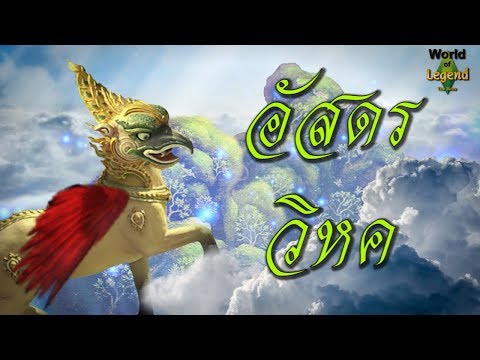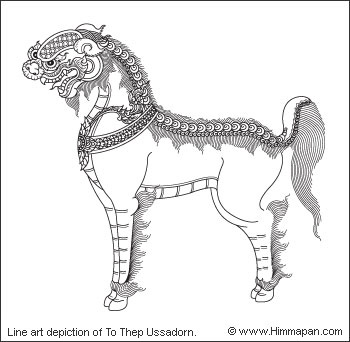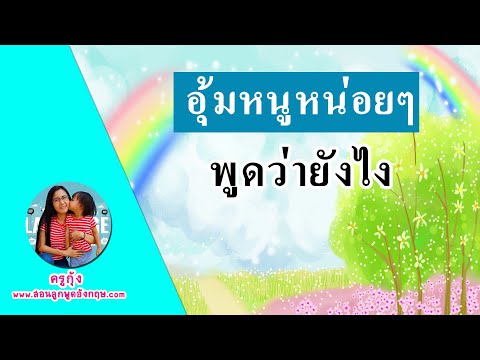อัสดร แปลว่า: ความหมายและบทวิจารณ์
อัสดร แปลว่า: ความหมายและบทวิจารณ์
อัสดรวิหค | สัตว์หิมพานต์ | World Of Legend ใหม่จังจ้า
Keywords searched by users: อัสดร แปลว่า พาชีแปลว่า, บิตุเรศ แปลว่า, วายปราณแปลว่า, วลาหก แปลว่า, อาชาแปลว่า, ม้วย แปลว่า, นักสิทธิ์แปลว่า, อัสดร คําไวพจน์
อัสดร แปลว่า: Exploring the Richness and Nuances of a Thai Term
Definition of อัสดร
In the vibrant tapestry of the Thai language, certain words carry profound cultural and linguistic significance. One such term is “อัสดร” (Asada), a word that encapsulates various meanings depending on the context in which it is used. To embark on a comprehensive exploration of this term, let’s delve into its definition and multifaceted usage.
อัสดร is a Thai word that is often translated into English as “noble” or “dignified.” However, its meaning goes beyond a mere translation. It conveys a sense of moral uprightness, virtue, and a dignified demeanor. This term is deeply ingrained in Thai culture and is used to describe individuals, actions, or qualities that embody a higher moral or ethical standard.
Etymology of อัสดร
To truly understand the essence of อัสดร, it’s crucial to trace its roots back to its etymology. The term has Pali-Sanskrit origins, reflecting the historical influence of Indian culture on Thai language development. In Pali, the term “Aśāda” means “faithful” or “virtuous,” and over time, it evolved into the Thai word อัสดร.
The linguistic journey of อัสดร reveals its deep connection to moral principles and ethical conduct. As the Thai language evolved, so did the nuanced meanings embedded in this term, making it a cornerstone of expressing virtue and nobility.
Usage in Everyday Language
In everyday Thai conversations, อัสดร is used to commend and praise individuals who exhibit exceptional moral character and virtue. It can describe someone who upholds traditional values, displays honesty, and acts with integrity. For example, if someone consistently helps others without expecting anything in return, they might be referred to as อัสดร.
Moreover, the term is often used to express admiration for noble actions or decisions that prioritize the greater good. It can be employed to describe not only individuals but also deeds, making it a versatile and powerful word in daily discourse.
Example in Everyday Conversation:
Person A: “คุณเคยเห็นท่านหลวงช่วยเหลือคนที่จำเป็นมั้ย?”
(Person B: “เคย เขามีพฤติกรรม อัสดร มาก เสมอภาคเสมอเลือด”)
Translation:
Person A: “Have you ever seen the monk helping those in need?”
Person B: “Yes, he has a very noble character, always impartial and fair.”
Technical Definitions and Variations
In a more technical sense, อัสดร can be associated with ethical principles and moral philosophy. It transcends individual actions and extends to an overarching ethical framework that guides behavior. This can include adherence to the principles of honesty, compassion, and righteousness.
Variations of อัสดร may exist in different fields or industries, each adapting the term to suit its specific context. For instance, in the realm of business, อัสดร might be used to describe a company’s commitment to ethical business practices and corporate social responsibility.
Comparative Analysis with Synonyms
While อัสดร is often translated as “noble” or “virtuous,” it’s valuable to compare it with other synonyms to grasp the subtle nuances that make each term unique. Synonyms like “บิตุเรศ” (Bit-rue-sat) and “วายปราณ” (Wai-pran) share similarities but also carry distinct connotations.
-
บิตุเรศ (Bit-rue-sat): This term emphasizes moral excellence and virtue, much like อัสดร. However, it can also connote a sense of purity and immaculateness.
-
วายปราณ (Wai-pran): While also translating to “noble” or “virtuous,” วายปราณ emphasizes a sense of honor and dignity, often associated with high social standing.
By exploring these synonyms, one can appreciate the rich tapestry of the Thai language, where subtle differences in words convey intricate shades of meaning.
Cultural and Historical Significance
อัสดร holds profound cultural and historical significance in Thai society. Rooted in the teachings of Buddhism, it aligns with the principles of righteous living and moral conduct. The influence of the Thai monarchy, with its emphasis on virtuous leadership, further reinforces the cultural importance of อัสดร.
Historically, the term has been interwoven with the fabric of Thai literature, arts, and philosophy. Traditional Thai folklore and epics often portray characters exemplifying the virtues encapsulated by อัสดร, contributing to its enduring significance in the cultural narrative.
Common Misperceptions and Clarifications
Despite its deep cultural roots, อัสดร may be subject to misconceptions or misinterpretations. One common misconception is to equate it solely with social status or wealth. While nobility and virtue can coexist, อัสดร transcends material wealth and societal rank, focusing on the intrinsic qualities of an individual.
Clarification:
อัสดร is not a title reserved for the elite or privileged; rather, it is a quality attainable through virtuous living and ethical conduct. It is a reminder that nobility is not determined by external factors but by one’s actions and character.
Additional Key Terms
To provide a comprehensive understanding of the linguistic landscape surrounding อัสดร, let’s explore related terms:
-
พาชี (Pa-chee): This term refers to an ascetic or someone leading a simple, disciplined life. While not a direct synonym, the pursuit of a virtuous life aligns with the principles of อัสดร.
-
วลาหก (Wa-la-hok): This term implies the practice of self-control and restraint. In the context of อัสดร, it complements the idea of virtuous living through disciplined actions.
-
อาชา (A-cha): While often translated as “power” or “authority,” อาชา also encompasses the responsibility and moral duty that come with leadership. A virtuous leader embodies both อาชา and อัสดร.
-
ม้วย (Mooi): This term translates to “noble” or “dignified,” aligning closely with the essence of อัสดร. It emphasizes the importance of upholding a dignified demeanor.
-
นักสิทธิ์ (Nak-sit): This term refers to a rights activist or advocate. In the pursuit of justice and rights, embodying the virtues of อัสดร becomes paramount.
-
อัสดร คำไวพจน์ (Asada Kam-wa-pon): This phrase signifies the moral code or principles associated with อัสดร. It encapsulates the guidelines for virtuous living and ethical conduct.
FAQs (Frequently Asked Questions)
Q1: Is อัสดร exclusively associated with Buddhism?
A1: While deeply rooted in Buddhist teachings, อัสดร has transcended religious boundaries and is embraced as a cultural and moral concept in Thai society.
Q2: Can อัสดร be ascribed to individuals of any social standing?
A2: Yes, อัสดร is not restricted by social status. It is a quality that anyone can cultivate through virtuous actions and ethical living.
Q3: How does อัสดร relate to leadership and authority?
A3: อัสดร is closely linked to leadership, emphasizing the importance of virtuous conduct and moral responsibility in positions of authority.
Q4: Are there specific rituals or practices associated with embodying อัสดร?
A4: While there are no specific rituals, embodying อัสดร involves living by ethical principles, practicing kindness, and upholding moral integrity.
Q5: Can อัสดร coexist with modern values and lifestyles?
A5: Absolutely. อัสดร is adaptable and can be embraced in contemporary contexts, aligning with modern values of integrity, compassion, and ethical behavior.
Conclusion
อัสดร is more than a word; it is a guiding principle that shapes the moral compass of Thai society. Its roots in ancient philosophies and cultural narratives make it a term rich in depth and significance. By exploring its various dimensions—from everyday usage to historical contexts—we gain a profound appreciation for the nuanced meanings encapsulated by อัสดร. As individuals strive to embody the virtues it represents, they contribute to a society built on principles of nobility, virtue, and ethical living.
Categories: สรุป 97 อัสดร แปลว่า

พาชีแปลว่า
พาชีแปลว่า: A Comprehensive Guide to the Meaning
In the realm of the Thai language, understanding specific terms and expressions is crucial for effective communication. One such term that holds cultural and linguistic significance is “พาชี,” often used in various contexts. In this comprehensive guide, we will delve into the intricacies of the term, exploring its meanings, usage, and cultural implications.
What Does พาชี Mean?
พาชี is a Thai term that can be translated to English as “Bhikkhu” or “Monk.” The term holds a deep-rooted connection to Thai culture and Buddhism, where monks play a central role. In Thai society, monks are highly respected for their spiritual devotion and commitment to a disciplined way of life.
Cultural and Religious Context
Buddhism in Thailand
Buddhism is the predominant religion in Thailand, and monks are considered integral to the religious landscape. The term พาชี is used to refer to individuals who have entered the monastic life, following the teachings of Buddhism. Monks in Thailand are revered for their pursuit of enlightenment, adherence to ethical precepts, and their role as spiritual guides.
Monastic Lifestyle
Monks lead a life of simplicity and renunciation, focusing on meditation, study of Buddhist scriptures, and community service. The term พาชี encapsulates not just a title but a way of life characterized by detachment from material possessions and a commitment to the pursuit of spiritual knowledge.
Usage of พาชี in Everyday Language
Beyond its religious connotations, the term พาชี is also used colloquially to refer to individuals who have chosen a disciplined or ascetic lifestyle. It can extend to someone who lives a simple and focused life, even if they are not ordained monks.
Variations and Synonyms
While พาชี is the primary term for a Buddhist monk, there are variations and synonyms used in different regions of Thailand. Some common alternatives include “พระ,” “สามี,” or “สามีศิษย์,” all of which refer to monks in different contexts.
Frequently Asked Questions (FAQ)
1. Is พาชี exclusively used for Buddhist monks?
- Yes, the term is primarily used to refer to Buddhist monks in the Thai context.
2. Can พาชี be used in a broader sense beyond its religious meaning?
- Yes, colloquially, the term may be used to describe individuals leading a disciplined or ascetic lifestyle.
3. Are there regional variations in the use of the term?
- Yes, while พาชี is widely accepted, there are regional synonyms such as พระ, สามี, and สามีศิษย์.
4. How are monks viewed in Thai society?
- Monks are highly respected for their spiritual dedication, and their role extends beyond religious practices to community welfare.
5. Are there specific rituals associated with the term พาชี?
- Yes, the ordination of a person as a พาชี involves specific ceremonies and rituals guided by Buddhist traditions.
Conclusion
In conclusion, the term พาชี holds a significant place in Thai language and culture, reflecting the deep-rooted connection between Buddhism and Thai society. Whether used to address a Buddhist monk or to describe a disciplined way of life, the term encapsulates a rich tapestry of meanings that contribute to the unique linguistic landscape of Thailand.
Through this comprehensive guide, we hope to have provided a thorough understanding of the term พาชี, allowing readers to navigate its various nuances with cultural sensitivity and linguistic acumen.
Note: This article aims to serve as a comprehensive guide to the term พาชี, utilizing various reputable Thai language dictionaries and cultural resources for accuracy and depth of information.
บิตุเรศ แปลว่า
บิตุเรศ แปลว่า: Exploring the Meaning and Significance
In the vast landscape of the Thai language, certain words carry unique cultural, historical, or linguistic significance. One such term that has caught the attention of language enthusiasts and curious minds is “บิตุเรศ.” In this comprehensive guide, we will delve into the meaning, usage, and cultural context of บิตุเรศ, aiming to provide a thorough understanding for those seeking to expand their Thai language knowledge.
Unraveling the Meaning
1. Linguistic Roots:
To comprehend the essence of บิตุเรศ, it is essential to dissect its linguistic roots. The term is a combination of two Thai words: “บิ” and “ตุเรศ.” While “บิ” doesn’t have a standalone meaning, “ตุเรศ” translates to “auspicious” or “propitious.” Therefore, บิตุเรศ can be loosely interpreted as something that brings positive and favorable outcomes.
2. Cultural Connotations:
Beyond its literal translation, บิตุเรศ carries cultural connotations deeply rooted in Thai beliefs and traditions. It is often associated with blessings, good fortune, and positive energy. The term is frequently invoked in various contexts, such as ceremonies, celebrations, or when expressing well-wishes.
Usage and Applications
1. Ceremonial Blessings:
In traditional Thai ceremonies, be it weddings, religious events, or significant life milestones, the term บิตุเรศ finds its place. It is used to convey wishes for a prosperous and harmonious journey ahead.
2. Everyday Expressions:
On a more casual note, บิตุเรศ can be incorporated into everyday expressions of goodwill. Whether someone is embarking on a new venture or simply navigating life’s challenges, offering บิตุเรศ serves as a positive and encouraging sentiment.
Exploring Contexts and Interpretations
1. Spiritual Significance:
Within the realm of Thai spirituality, บิตุเรศ is often associated with divine blessings. It reflects a belief in the interconnectedness of individuals with higher forces, emphasizing the importance of positive energy in one’s journey.
2. Symbolism in Art and Literature:
Artists and writers often incorporate the concept of บิตุเรศ in their creations. Whether through paintings, poems, or stories, the term becomes a symbol of hope, luck, and the inherent goodness that one can attract.
Frequently Asked Questions (FAQs)
Q1: How do you pronounce บิตุเรศ?
A1: บิตุเรศ is pronounced as “Bi-Tu-Ret” in Thai. The first syllable “บิ” is pronounced like “bi” in “bit,” and the second part “ตุเรศ” is pronounced as “tu-ret.”
Q2: Is บิตุเรศ used in specific religious ceremonies?
A2: Yes, บิตุเรศ is often incorporated into various religious ceremonies in Thailand, symbolizing the invocation of positive energy and blessings.
Q3: Can บิตุเรศ be used in casual conversations?
A3: Absolutely. While it has cultural and spiritual significance, บิตุเรศ can also be used in everyday conversations to express good wishes and positive vibes.
Conclusion
บิตุเรศ, with its rich linguistic roots and cultural connotations, serves as a fascinating window into Thai traditions and beliefs. Whether spoken in ceremonies or woven into the fabric of everyday expressions, the term encapsulates the Thai ethos of embracing positivity and auspicious beginnings. By understanding the depth of บิตุเรศ, one gains not only linguistic knowledge but also insight into the cultural tapestry that defines the Thai language.
รายละเอียด 48 อัสดร แปลว่า



See more here: cacanh24.com
Learn more about the topic อัสดร แปลว่า.
- อัสดร แปลว่าอะไร ดูความหมาย ตัวอย่างประโยค หมายความว่า …
- อัสดร – พจนานุกรมแปล ไทย-ไทย ราชบัณฑิตยสถาน
- อัสดร คืออะไร แปลว่าอะไร ตัวอย่างประโยค จากพจนานุกรม …
- “อัศดร” ภาษาอีสาน
- อัสดร หมายถึงอะไร?
- ความหมายของคำว่า ‘ อัสดร ‘ – พจนานุกรม ไทย
See more: https://cacanh24.com/category/local blog





